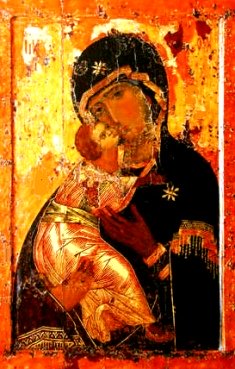A daily study of the Network’s diverse faiths


Pohela Boishakh (Bengali New Year, Bangla Noboborsho, Rongali Bihu). 1st day of 1st month of Boishakh in Bengali lunisolar calendar, celebrated as New Year’s Day by Bengalis in West Bengal, Tripura and Assam. The tradition goes back to the Mughal era, when the governor Nawab Murshid Quli Khan instituted a ceremonial land tax collection. Image: freepik. com. Rongali Bihu (Bohag Bihu), Assam’s Harvest Festival, to ensure the new agricultural season will end in a good harvest and coinciding with Pohela Boishakh, marks the beginning of the Assamese New Year with celebrations from 14 April. Traditions include the cleaning of houses, the wearing of traditional clothes such as the dhoti, gamosa and saadar mekhela and floral tributes to the river. People make pithas (pancakes) and distribute them to friends and relatives. This 2nd day (Mul Biju) has the singing of traditional Biju folk songs and dancing in the north-eastern Indian state of Tripura. On the final day, the elders of the community are normally invited to a banquet to renew their marriage vows with their spouses. Normally, there are visitors from other Indian states such as Sikkim, Manipur and Nagaland and from Bangladesh, which has a large Chakma community. Image: firstpost.com.

Padarn Sant (St Paternus of Wales) (c482-c568). Commemoration of one of the founding fathers of Welsh monasticism, a Breton who set out for Wales with a group of young ascetics to seek the solitary life. He met prominent mentors of the Welsh Church and heeded their spiritual advice, withdrawing for solitary prayer. Soon though, together with other monks, he founded the Monastery of Llanbadarn Fawr (the Great Monastery of Padarn) near Aberystwyth, where some 120 monks lived with Paternus as Abbot for over 20 years. Paternus was noted for his gift of inspired speech, love, compassion, mercifulness and humility. He tirelessly preached the Good News of Christ to the pagans, whose chiefs maligned him. Accused of stealing numerous royal treasures, Paternus put his hand into a cauldron of boiling water and took it out unharmed. As Bishop, he built many churches across Wales and established several monastic communities. After his death, Paternus was buried together with many other saints on the island of Bardsey. Llanbadarn became a renowned centre of learning, with its own scriptorium, and c1079 the famous Psalter of Llanbadarn was produced there. Asser, a learned advisor to the Holy King Alfred the Great and later a Bishop, studied there as a young man. The monastery was attacked by Norsemen in the late-10th Century but was rapidly restored. After a brief 12th Century association with Gloucester Abbey’s Benedictine monks, it ceased to be a monastery and was governed by married priests (secular canons). The present large mid-13th Century church and a 20th Century chapel are dedicated to St Paternus on the site of his original monastery. 2 rare Celtic crosses are kept in the church and pilgrimages are still organised. Venerated in Anglican Communion, Eastern Orthodox, Roman Catholic Churches, Wales, Brittany, Cornwall, Devon, Somerset. Alternative commemoration 28 April. Image: Dmitry Lapa.

Our Lady of Keiff. In 1010, the 1st resting place of this image of Mary was Keiff on the banks of the Dnieper River, where the Apostle St Andrew had once stopped on his way from Constantinople to Rome, saying: “See those hills? On those hills shall shine hereafter the grace of God.” The monastery in Pechersk, Kiev housed the image until the 15th Century, when the Grand Duke of Moscow wanted it for the Church of the Assumption in the Kremlin, as a memorial of his marriage. Keiff rose in protest but the Blessed Virgin appeared in a vision to say that she would personally have it replaced and this promise was mysteriously and immediately fulfilled. There are now thousands of copies spread across the world. Image: © Copyright 2011 Roman-Catholic-Saints.com
Prayer Mother of Christ, from the riverbank hear thee thy people’s cry, thou star of the deep and portal of the sky. Mother of Him whom thou from nothing made, sinking we strive and call to thee for your aid. Oh, by that joy which Gabriel brought to thee, thou Virgin first and last, let us thy mercy now see. Amen
